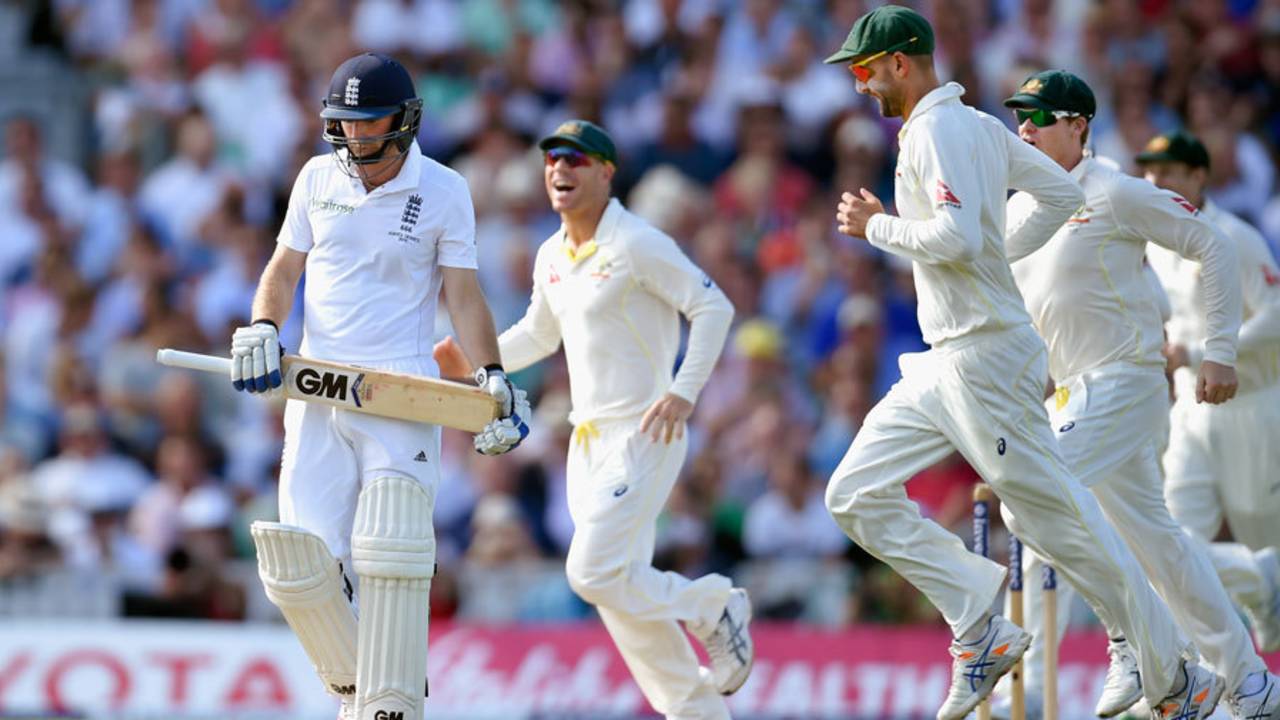No matter how much he bowls in this last Test,
Peter Siddle will bowl less overs than people make banana jokes about him, and that is a crime against comedy and cricket. Siddle is a perpetual champing-at-the-bit cricketer, but watching
Josh Hazlewood struggle with lines, must have made him eat the bit, swallow it, find a new bit, and place that on a tight fourth-stump line that zipped away off the seam. Could Siddle at Edgbaston have made a difference with what Shane Warne has called (in a brutal Vic on Vic attack) medium pace? Yes, maybe. But Australia trusted pace and youth, and the old grey mare (a fit-looking 30-year-old who had bowled well in the warm-ups, played in four Ashes,
has 69 wickets against England at 29 and 192 career Test wickets) was left in the paddock.
Had Australia won the toss at Trent Bridge, they probably would have bowled.
Joe Root is averaging over 60. No one else in the top seven is averaging over 35. Moeen Ali and Mark Wood come next on the list. Wood has the second best batting average for England in a winning Ashes team. His imaginary horse is probably fourth. What would have this batting line-up, with two openers seemingly allergic to forming a partnership, an experimental No.3 and a middle order of attackers have done that fateful morning? Root might have made 150, and England might have made 200.
England have walked into bat twice this series with Australia having put big totals on the board. Both times they have never flirted, or even looked in the general direction, or even pretended that the score was something they could be attracted to. Scoreboard pressure is real, y'all. When you walk out to bat after the opposition have made roughly 500 (506) less than 560, batting, and life, is better. Here Australia made 481, England have batted much the same way Wile E. Coyote chased the road runner. Imagine (and it will be hard) that at either Edgbaston or Trent Bridge England had any total of even casual size to look at, let alone, something giant like 250,on a still helpful pitch. Now, imagine
Stuart Broad's jazz hands guesting on the last season of Glee.
How many Ashes Tests would these two teams need to play in order for both teams to play well at the same time? Is it even possible that for a whole Test England could pitch the ball up, and Australian batsmen make informed batting decisions? Could the Australia bowlers maintain their line and lengths while England bat well? Would there ever be a time when we have a Test without a calamitous batting collapse? Would it be a tie if, by some miracle, both teams mustered the ability to not play horribly for a whole Test, or would a black hole just appear at gully and swallow Adam Lyth?
In an alternate universe where Shane Warne makes informed insightful, nuanced, concise unbiased cricket comments and Mike Atherton has a Pamela Anderson mural in his bedroom,
Peter Nevill plays at Cardiff. Even in the real universe,
Brad Haddin's form was poor enough for him not to come on this tour (West Indies included), and his form was certainly poor enough for him to not play at Cardiff. Even with Haddin's famous grit and stunning team bonding personality, Nevill's hands might just have been in the right place, at the right time, to catch Root. Then that ball might have hit his softer, nimbler fingers, just right, and then, well, England, without Root, could have fallen right over. Maybe that is just the overly romantic view, much like the picking of Haddin in the first place was overly romantic.
